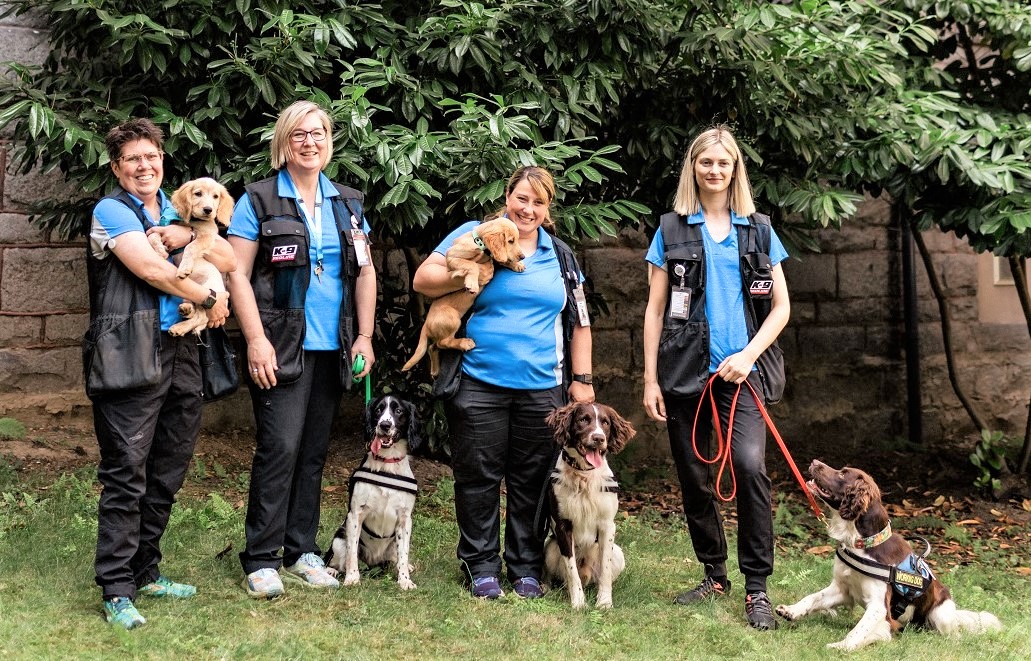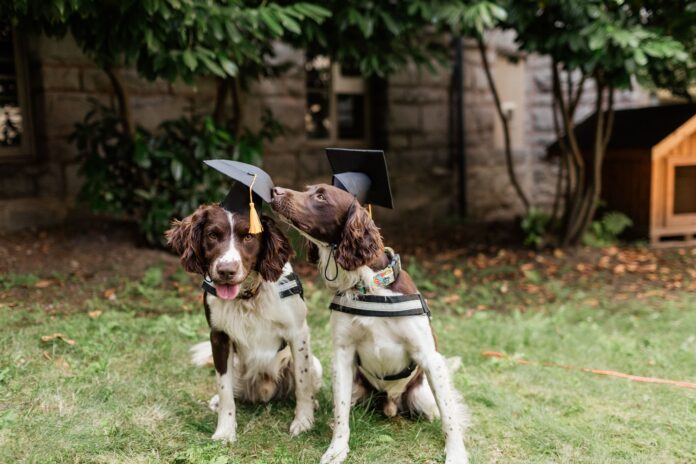VGH and UBC Hospital Foundation, Vancouver Coastal Health‘s primary philanthropic partner that raises funds for specialized adult health services and research for all British Columbians, on Wednesday announced that the Canines for Care team welcomed two new adult dogs, Arti and Anton, into their program.
“Arti and Anton passed their stringent certification testing after thousands of hours of training, and they now work permanently for Canines for Care at Vancouver Coastal Health (VCH),” said Teresa Zurberg, Co-founder and Program Research and Innovation Lead for VCH’s Canine Detection Program.
“Just like Fancy, one of our other Springer Spaniels Canines for Care dogs, they will be excellent scent detectors — using the power of their nose to make the invisible, visible. It was very exciting for our entire team to welcome both dogs officially into the program on the date of their second birthday.”
Canines for Care is led by a multi-disciplinary team of medical professionals, infection prevention and control practitioners and canine detection specialists, and it is an innovative way to rapidly and non-invasively detect pathogens and help in the reduction of infection rates in health care settings. VGH and UBC Hospital Foundation helped launch Canines for Care by providing funding to the original pilot program, which was proven so successful it became permanently embedded at VCH.
With more than 300 million olfactory receptors, dogs are known to be able to detect unseen threats to human health, including bacterial and viral infections and cancer, and their accuracy can be comparable to certain laboratory diagnostic tests.
VCH was the first health care organization in the world to operationalize its Clostridioides difficile (C. difficile) detecting canine program to detect and reduce cases of C. difficile in the health care environment. Since 2016, the canine scent detection teams at VCH have searched thousands of hospital areas for C. difficile. They’ve also visited more than 30 Canadian health-care facilities to share their expertise.

There are currently seven dogs in Canines for Care. Five of them specialize in C. difficile detection and two of them are research dogs learning new pathogen scent detection. The Canines for Care scent detection program continues to evolve. Building on the strong foundation developed with the C. difficile scent detection program, Canines for Care dogs were able to detect COVID-19, and the program is now exploring canine scent detection for new and emerging pathogens.
“The Foundation has been a supporter of the Canines for Care program from its start, aligning with its innovative approach to solving a persistent problem of hospital-borne infection. With the support of our donors, we funded a pilot program created by the world-leading infection control at Vancouver General Hospital. We are thrilled to see the program not only be adopted by Vancouver Coastal Health, but see it generate revenue as a service to other hospitals and health authorities across North America,” said Angela Chapman, President and CEO, VGH and UBC Hospital Foundation.
“This program has not only proven more effective than machine technologies to do the same job, but it is also providing revenues that are re-invested in research.”
For more information on the Canines for Care program visit https://www.vch.ca/en/service/














